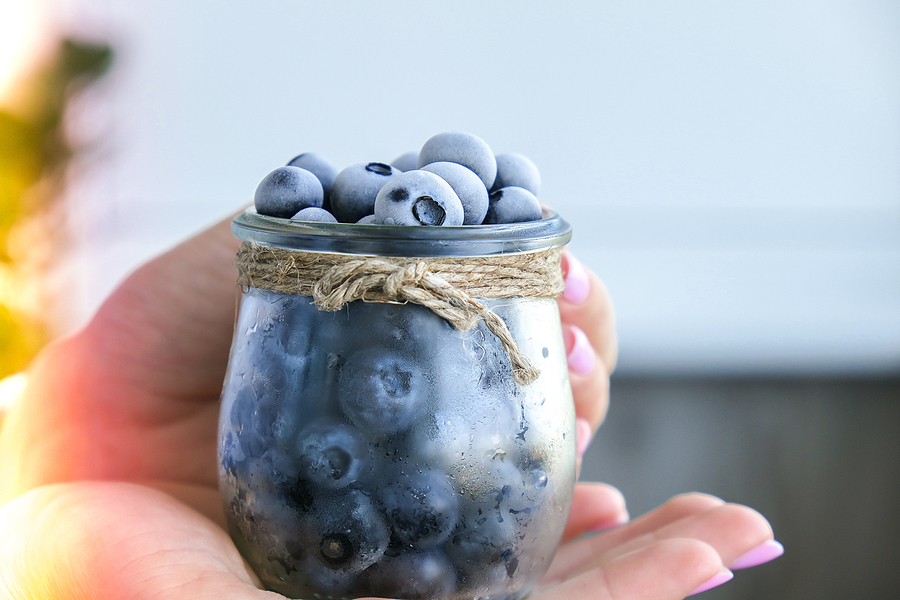Earlier this week, I put out my first article that talked about the new coronavirus situation. Because things are rapidly changing, at least here in Maine, and there’s so much uncertainty about what’s to come, I want to continue the discussion on a regular basis. I’m hearing from friends and patients that they’re terrified and feeling out of control – an unsettling way to feel, for sure!
There’s no doubt that Coronavirus is a serious issue that deserves the serious attention it’s getting. I’ve heard from friends on the front lines in Italy, and the situation there is horrifying. We certainly want to avoid that here in the US if at all possible. But panic doesn’t do anyone any good – and can make the situation far worse than it needs to be.
Now, more than ever, we need to understand what exactly we’re dealing with. Rumors and innuendo feed fear. There are some common myths still circulating – about how the virus is spread, the death rates and who is most susceptible, what will prevent transmission and more. An recent article in Clinical Advisor addresses some of these issues, and is well worth a read.
Of course, we should take any highly contagious disease seriously. Social distancing and self-quarantine if you are sick or know you have had contact with someone who has tested positive for COVID-19 make sense to stop the spread of the virus. But the panic and hopelessness I hear from people, the needless hoarding of supplies and the doubt over whether health professionals are equipped to handle the virus here isn’t helping anyone.
I know that uncertainty is unsettling. And I have no idea what will happen tomorrow or in the days to come. No one does. But I’ve been reading anything I can to get a complete picture of the issue, and I do have are some well-informed thoughts on how we can respond to this, and how we can keep ourselves healthy and moving forward, day by day, until the crisis passes. And if we know one thing from history it’s that eventually, the crisis will pass, and we’ll be ready to start anew. Our country has been through incredibly hard times before – wars, the Great Depression, natural disasters, and the horrifying 9/11 terrorist attack. We can learn from those times – and how the country pulled together to emerge stronger. We’ve done it before, and we can do it again, as long as fear and panic don’t win out over common sense and collaboration.
Let’s take a quick look at what we know about COVID-19. Then I’ll talk about what it means for us all, how we can best support ourselves and our communities, some novel treatments, and some specific techniques for reducing stress and boosting immunity in this incredibly stressful time.
What do we know about coronavirus?
In my previous article about keeping the immune system healthy during the COVID-19 spread, I included a lot of the things we knew at that time, so I won’t repeat them all here. But I did want to mention a couple of things that have come up since – and a couple that bear repeating.
- The media’s job is to report news. Death is big news, so those numbers are what the media often focuses on. They aren’t going to report on the people who don’t die (or have a case so mild they don’t even know they have it). That’s why we need to respond with careful thought, not hysteria due to media hyperbole.
- Most reported cases of coronavirus are mild.
- Highly vulnerable people – the elderly, and people with pre-existing conditions that compromise their immune or respiratory systems, such as people with uncontrolled diabetes, heart disease, emphysema, and COPD, are more likely to develop severe symptoms or die from contracting coronavirus.
- There are protocols that are highly effective in controlling the spread of contagious disease.
- Health care providers in US hospitals are reporting that they have the supplies they need. They are, of course, incredibly busy. But they aren’t running out of essential supplies yet. But if the confirmed cases continue to rise at the rate we are seeing, that could change.
- The information out of Italy is devastating – but there’s more about their situation that people need to know. Italy has the second oldest population in the world. The average age of people who are dying there is 81 years old. Without understanding these critical factors, the statistics that you hear may cause undue panic about your own situation.
- South Korea is doing it right. They are aggressively testing anyone who shows signs of having contracted the virus, and their efforts are paying off. Their mortality rates are low, high risk cases are prioritized in hospitals, and the reported new cases are slowing dramatically – just 74 on March 17th, down from a peak of 909 on February 29th. More than anything else, this data should give you hope.
In Maine (and across the country), more and more places are closing, including schools, businesses, restaurants and bars. Even our iconic L.L.Bean has closed all retail locations and installed locks on the doors of their Freeport store (prior to this there’s been no need for locks, since they are open 24/7 365 days per year). Adequate testing is still not available. Just today I had someone in my office that I wanted to have tested, but it was denied. US residents coming back from Europe are in very close quarters with others for long stretches of time. So, we don’t quite have it under control here in the US.
That’s why social distancing is so important, whenever it’s possible. But for many Americans, it’s just not realistic to stay home entirely. So many people are living paycheck to paycheck, doing whatever they can to support their families. That’s why I want to give you some tips on how to keep yourself as healthy as possible in these uncertain times.
What can I do to take care of myself and my family?
The very first thing I want you to do is breathe. Stop whatever you are doing, clear your mind, and take a deep breath for seven counts. Hold for seven counts, and then exhale for seven. Do this whenever you feel panic begin to take hold.
Now listen closely when I tell you that this is the perfect time to change what you’ve been doing – the constant running around, eating processed foods and filling up on sugar, depriving yourself of necessary sleep – all of that can wreak havoc on your immune system. To avoid contracting COVID-19 – and any other virus – you need a strong, healthy immune system. How can you boost your immune system? Here’s a few tips:
- Be sure to eat whole foods packed with nutrients. Your immune system is counting on you to give it the nutrients it needs to function at its best. Infections can be fought within your body if there aren’t nutrient deficiencies. But sadly, more than 90% of Americans are lacking at least one essential nutrient! The quality of your diet matters!
- Eliminate sugar, refined starches, and processed foods. I know that people are worried right now about getting enough food. The empty pasta and rice shelves are evidence that people are stocking up, just in case. But your body can’t handle all that sugar and starch – it impedes your immune system for hours after consumption. And here’s an interesting phenomenon: grocery stores still have plenty of fruits and vegetables on the shelves. This is exactly what your body needs! Strive to eat at least two half-cup servings of fruit and eight servings of vegetables every day! Choosing vegetables high in vitamins A and C, as well as those with phytonutrients (such as dark leafy greens) will support your immune system best. If you fear you won’t be able to use the vegetables you buy before they go bad, try making batches of soup and freezing them for later.
- Don’t skimp on the spices. Many foods used to add flavor are great for supporting your immune system. Garlic, onions, ginger, and a variety of other spices may be just the boost you need.
- Balance your pH. If you are eating a lot of sugar and processed foods, your body may be more on the acidic side. Bone broth or vegetable soups are a great way to balance things out.
- Make sure you are getting the essential nutrients you need. A high-quality multivitamin is recommended daily to be sure your body is getting the nutrients it needs to stay healthy. You may need other targeted supplements if you have deficiencies (more on this tomorrow).
- Take care of your gut. Your microbiome is a vital piece of the puzzle, and it needs to be healthy. Eat or drink fermented foods like kombucha, miso, tempeh, unsweetened yogurt and kefir. Consider taking a probiotic to boost gut health.
- Hydrate! Your body needs adequate fluid intake to stay healthy. Filtered water is important, but there are plenty of other ways to get the fluids you need. Herbal tea, soups and broths made from scratch are all great options. Remember to avoid sugary drinks, even real fruit juice, since the sugar content can be tough on the immune system.
What can I do to relax and de-stress?
Now more than ever, you need to take time for yourself. You cannot ignore self-care, especially if you’ve suddenly become a homeschooling, work from home parent who also has elderly relatives you’re concerned about. Keeping up with healthy habits might seem impossible, but it’s a must! Here are a couple of ideas on how to soothe anxiety and keep yourself going strong.
- Turn the TV off and put your phone down for a while. Constant monitoring of the news will keep anxiety levels high. Trust me, if something major happens, you’ll know soon enough. Give yourself some stretches of peace – read a good novel, play a board game, do a puzzle, start a household project you’ve been putting off, sit in the sunshine, or take a walk – even if it’s just in your backyard. Studies have shown that simply looking at violent images can take a toll on your immune system, compared to looking at peaceful images. The news doesn’t change much from minute to minute. Try choosing one time of day to check in on the world, and then let it go until the next day.
- Don’t stop moving. Your gym may be closed, dance classes cancelled, and group yoga classes called off. That doesn’t mean you can’t get regular exercise. Many coaches and personal trainers are getting creative, offering classes via Zoom or other online platforms to help keep people motivated. If that’s not for you, take a walk in your neighborhood, get out a bike and take a spin around the block, or have a private dance party in your living room. If nothing else, walk up and down your stairs for several minutes. You don’t want to overexert yourself, but mild to moderate exercise can really boost your immune system.
- Don’t skimp on sleep. This may be a perfect time to reset your internal clock, especially if you don’t have to rise at a specific time to get to the office. Set a schedule for yourself and stick to it – and be sure it allows for seven to eight hours of sleep per night. If you find yourself exhausted during the day – take a nap!
- Try yoga or meditation. Mindfulness can be really helpful in calming your nerves. Increased stress causes you to be more susceptible to viral illness, so finding ways to clear your mind and lower your stress levels is vital.
- Just breathe. Deep breathing can calm your nervous system, reduce stress, and help you cope. There are many different techniques you can try – any of them will do!
How can I avoid infection and help stop the spread of COVID-19?
- Use common sense and follow social distancing recommendations. Now is not the time to go to a big event (and most of them have been cancelled anyway). Don’t hug, shake hands, high five or fist bump. Stay 6 feet away from others when in public. Cancel travel, whether for business or pleasure. Work from home if possible.
- Stay home, especially if you are exhibiting any symptoms that could indicate you have been infected with coronavirus. There are those who are very vulnerable to this kind of virus, and they are counting on all of us to be considerate and stay home when we are sick. Even if you seem perfectly healthy, it’s best to stay home whenever possible. Use this time to reconnect with your teenagers, start a project you’ve been putting off, or do your spring cleaning.
- Call your health care professional if you have suspicious symptoms. Don’t go to the emergency room – you don’t want to expose yourself needlessly, and you don’t want to overwhelm the health care system. Leave the emergency room for true emergencies!
- Maintain good hygiene. Wash your hands often and thoroughly with warm water and soap, for at least 20 seconds. Wipe down surfaces frequently. Don’t share food or beverages with others. Stop touching your face (yes, I know it’s difficult!).
- Pay attention to the little details. For instance, when pumping gas wear gloves to limit exposure to a handle many others have touched. When you are finished pumping your gas, take off the gloves, and wipe down your card before putting it away. Use the drive through when you can – like for food pick-up, or at the bank and the pharmacy.
Finding Opportunity and Optimism in Trying Times
I said it before, and I’ll say it again – no one knows what will happen right now. We’re all doing the best we can to continue living our lives in the midst of uncertainty. But I want you to know that I have faith that you can and will make it through this.
Yes, the world may be a different place when this is behind us. And maybe that’s a good thing. The way society has been functioning, with the vast discrepancies of wealth vs. poverty, infighting, and the terrible way we’ve cared for ourselves and each other, it’s time for a big change.
Here are a few ideas on pulling together in these difficult times:
- Call your loved ones. Face time or video chat. Don’t isolate yourself entirely – we all still need social contact, even if it’s not in person. Make sure your friends and family have what they need. Help them find resources if necessary. Rogers said, “Look for the helpers,” in times of crisis. I’ll take it a step farther — become a helper if you can.
- Trust yourself. You have everything you need to survive. You can be creative in getting what you need, even if it’s harder than it has ever been. Also, rely on the people you trust. They are still there for you.
- Use email, messaging, or send a card or letter. Let friends and family know you are thinking about them in these difficult times by taking a few minutes to write a note or chat with someone in writing. No, it’s not the same as meeting up in person, but it’s certainly better than no contact at all.
We WILL survive this crisis with patience, trust, and self-care
Anytime an unfamiliar disease begins to spread widely, we need to pay attention. We need information. We need to carefully consider who should leave their homes, and when. We need to limit large gatherings.
We also need to trust in ourselves and remain calm. A level head will allow you to consider all of the ways you can take care of yourself, and those you love. Worry is hard to avoid but dwelling on it will create even more chaos in your body – so now is the time to support that body in any way you can.
Food is the most powerful tool you have for keeping yourself healthy. Avoid the impulse to stock up on processed foods and go for the fresh fruits and vegetables that are still in plentiful supply. Add a quality multivitamin to your daily routine, if you don’t already take one. Give your gut some extra support with a probiotic. Be sure you’re getting enough Vitamin C and D.
Finally, take a deep breath and remember that the world is not ending. Take this time to reconnect with your family and slow yourself down. Look for resources online to help de-stress and center yourself. And above all – just breathe!







